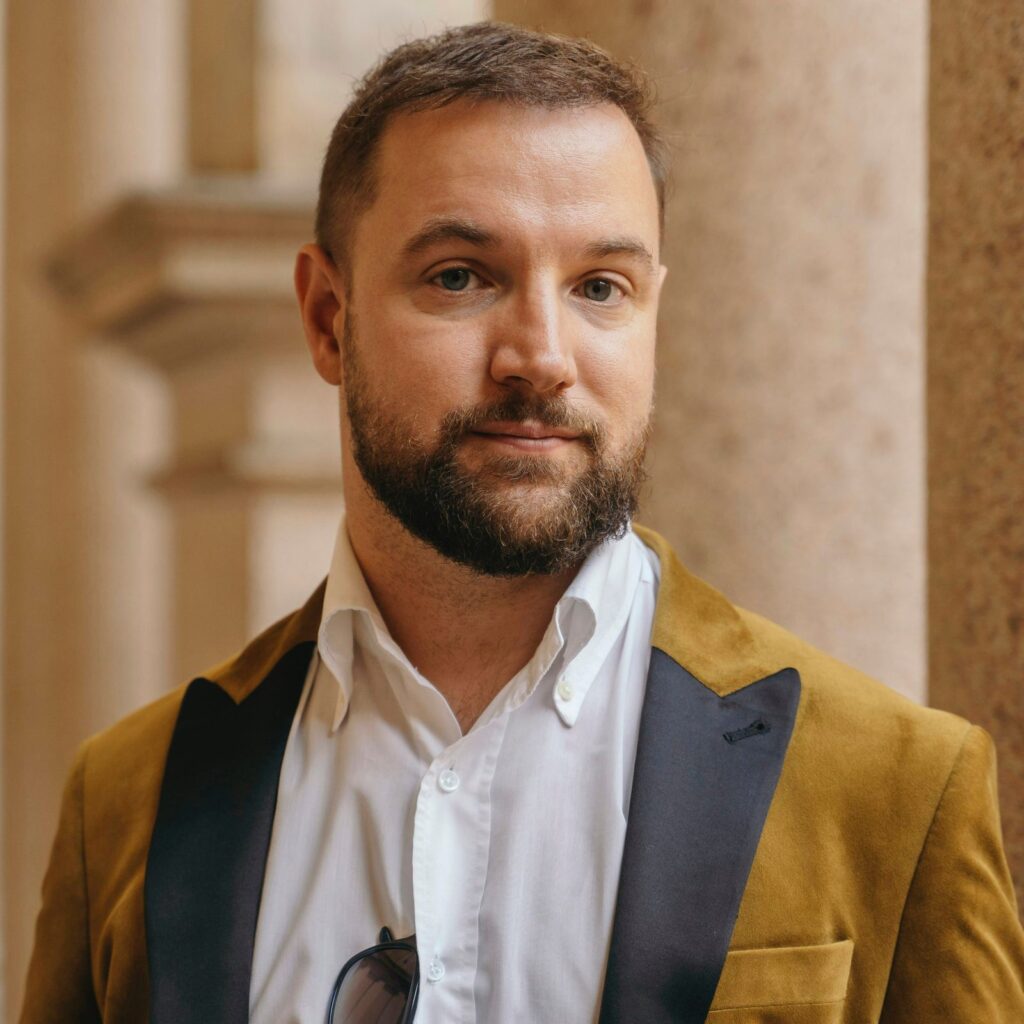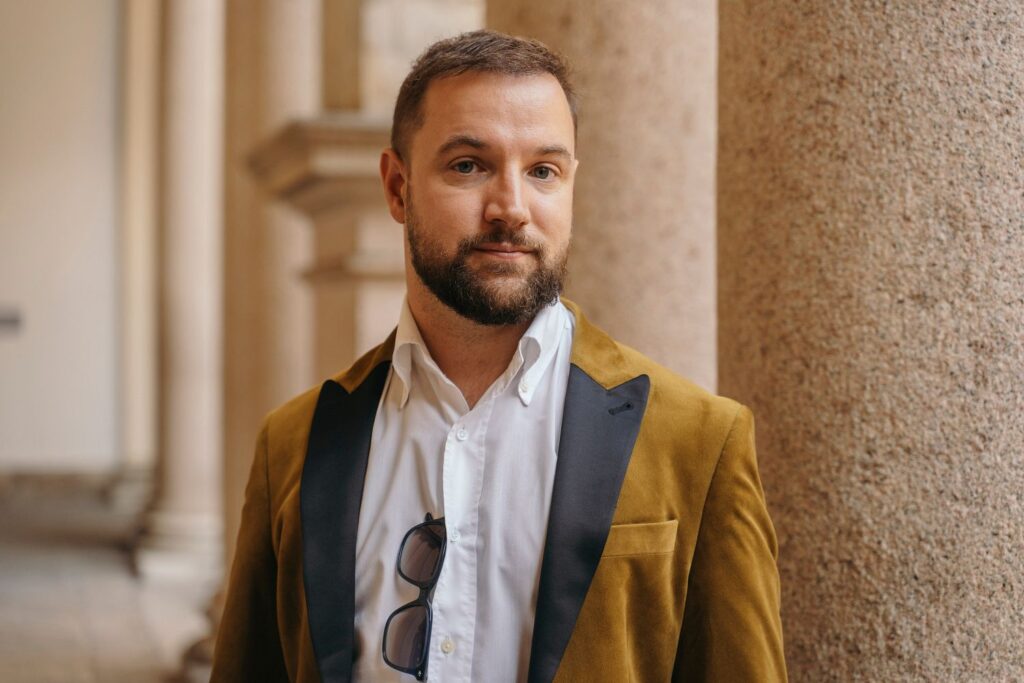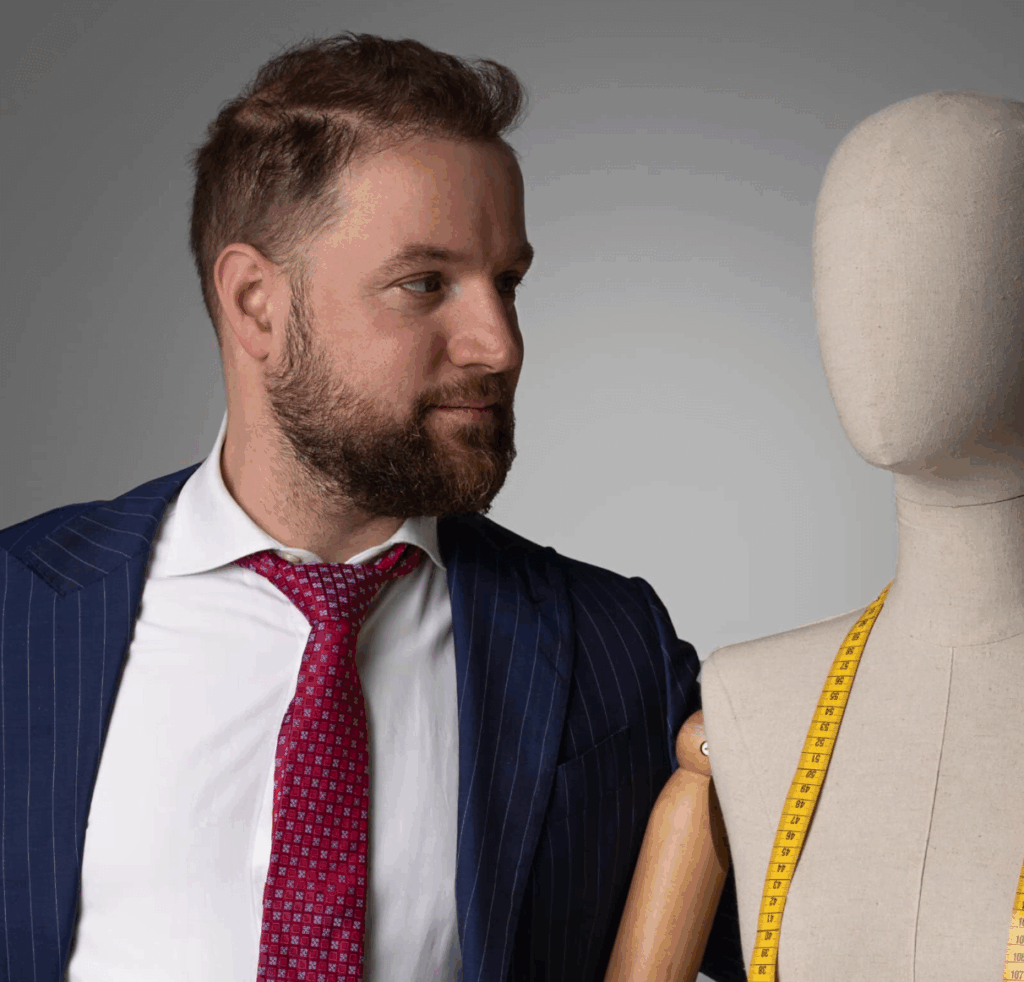B2B luxury marketing is transforming the way premium businesses connect, building strategies that are all about trust, prestige, and lasting partnerships. Surprised? Most people think B2B is just about simple transactions and bulk deals. But here is the bombshell: companies focused on luxury B2B markets see up to 20 percent higher loyalty rates compared to other sectors. That kind of commitment changes what brands can achieve together.
Table of Contents
- Defining B2B Luxury Marketing: Core Principles
- The Importance of B2B Luxury Marketing in Today’s Market
- How B2B Luxury Marketing Functions: Key Strategies and Concepts
- Target Audiences in B2B Luxury Marketing: Understanding Client Needs
- Real-World Applications and Trends in B2B Luxury Marketing
Quick Summary
| Takeaway | Explanation |
|---|---|
| B2B luxury marketing emphasizes relationships | It prioritizes long-term strategic partnerships over simple transactions, fostering deeper engagements. |
| Target audience understanding is crucial | Businesses must analyze client motivations and professional dynamics to tailor marketing strategies effectively. |
| Superior value communication is essential | Articulating premium offerings and brand prestige enhances market position and client relationships. |
| Utilize digital innovation for engagement | Advanced technology enhances personalization and creates immersive professional experiences for clients. |
| Psychological insights drive strategy effectiveness | Understanding emotional drivers behind decision-making is vital for crafting impactful marketing communications. |
Defining B2B Luxury Marketing: Core Principles
B2B luxury marketing represents a sophisticated approach to business interactions within premium market segments. Unlike traditional business marketing, this specialized domain focuses on creating high-end, value-driven connections between businesses operating in luxury ecosystems.
Understanding the Strategic Landscape
B2B luxury marketing transcends conventional transactional relationships. It involves cultivating deep, strategic partnerships where businesses interact through a lens of exceptional quality, exclusivity, and mutual brand prestige. According to business marketing research, B2B markets are characterized by complex interactions that go beyond simple product exchanges.
Key characteristics of B2B luxury marketing include:
![]()
- Relationship-Driven Interactions: Emphasizing long-term strategic partnerships
- Premium Value Proposition: Focusing on superior quality and unique offerings
- Tailored Communication: Delivering personalized engagement strategies
Distinctive Elements of B2B Luxury Engagement
In luxury B2B contexts, marketing strategies are meticulously crafted to address the nuanced expectations of high-end professional clients. These strategies recognize that decision makers in luxury markets seek more than functional solutions – they demand comprehensive experiences that reflect their organization’s sophisticated identity.
The approach involves understanding intricate professional networks, recognizing the psychological drivers behind luxury business decisions, and creating communication frameworks that resonate with executive-level expectations. Each interaction is an opportunity to demonstrate exceptional competence, professional elegance, and strategic alignment.
Successful B2B luxury marketing requires a profound comprehension of how premium businesses evaluate potential partnerships.
This table outlines the key features and characteristics that define B2B Luxury Marketing, synthesizing main points from the article.
| Feature | Description |
|---|---|
| Relationship-Driven | Focuses on building lasting, trust-based partnerships between premium businesses |
| Premium Value Communication | Articulates brand prestige, quality, and uniqueness |
| Personalized Engagement | Delivers tailored communications that match executive-level expectations |
| Psychological Insight | Considers emotional and cognitive drivers behind organizational buying decisions |
| Experiential Positioning | Creates memorable professional interactions that reflect organizational aspirations |
| Strategic Audience Segmentation | Maps complex influence networks and business needs for precise targeting |
| Digital Innovation | Leverages technology for immersive, personalized client experiences |
| Executive-Level Alignment | Ensures brand reputation and strategic goals align with high-end professional clients |
| It goes beyond traditional metrics, integrating emotional intelligence, brand reputation, and strategic compatibility into a holistic engagement model. |
Below is a comparison table highlighting the differences between Traditional B2B Marketing and B2B Luxury Marketing, based on the strategies and priorities described in the article.
| Aspect | Traditional B2B Marketing | B2B Luxury Marketing |
|---|---|---|
| Relationship Focus | Primarily transactional | Long-term strategic partnerships |
| Value Proposition | Emphasizes functionality and cost | Emphasizes premium quality and exclusivity |
| Communication Style | Standardized messaging | Tailored, personalized engagement |
| Target Audience | Broad business segments | High-end, executive-level professional clients |
| Measurement of Success | Sales volume and efficiency | Loyalty rates, prestige, and partnership durability |
| Strategic Objective | Efficient product/service delivery | Building brand prestige and mutual brand alignment |
| Role of Emotional Intelligence | Limited | Integral for understanding executive motivations |
The Importance of B2B Luxury Marketing in Today’s Market
In an increasingly competitive global business landscape, B2B luxury marketing has emerged as a critical strategic approach for organizations seeking to differentiate themselves and create meaningful professional connections. This specialized marketing segment represents more than a sales strategy – it is a comprehensive framework for building exceptional business relationships.
Economic and Strategic Significance
The significance of B2B luxury marketing extends far beyond traditional commercial interactions. According to research in the Journal of Business Research, digital platforms and sophisticated engagement strategies are transforming how businesses perceive and interact with luxury brands.
Key strategic advantages include:
- Brand Differentiation: Establishing a unique market positioning
- Premium Perception: Communicating superior value and expertise
- Network Expansion: Creating influential professional connections
Competitive Advantage Through Sophisticated Engagement
B2B luxury marketing provides businesses with a powerful mechanism to transcend conventional market boundaries. By focusing on high-quality interactions, organizations can transform standard business relationships into strategic partnerships characterized by mutual respect, shared vision, and long-term collaborative potential.
This approach recognizes that decision makers in premium markets are not merely purchasing products or services – they are investing in comprehensive business experiences. The marketing strategy becomes a nuanced communication tool that speaks directly to executive-level expectations, demonstrating deep understanding of complex professional ecosystems.
Moreover, in an era of increasing global competition, B2B luxury marketing offers a sophisticated pathway for businesses to showcase their unique capabilities. It goes beyond traditional metrics, integrating emotional intelligence, brand reputation, and strategic compatibility into a holistic engagement model that resonates with high-end professional audiences.
How B2B Luxury Marketing Functions: Key Strategies and Concepts
B2B luxury marketing operates through a complex framework of strategic approaches that prioritize sophisticated relationship building and value communication. Unlike traditional marketing models, this specialized domain requires an intricate understanding of professional dynamics and premium market expectations.
Strategic Marketing Framework
The operational mechanism of B2B luxury marketing centers on creating multi-dimensional engagement strategies that transcend conventional transactional interactions. According to research exploring luxury brand marketing strategies, successful implementation involves comprehensive analysis of brand positioning, competitive landscape, and targeted communication approaches.
Key strategic components include:
- Symbolic Value Communication: Articulating brand narrative and professional prestige
- Precision Targeting: Identifying and engaging high-value business decision makers
- Experiential Positioning: Creating memorable professional interaction models
Psychological and Relational Dynamics
B2B luxury marketing functions by understanding the complex psychological motivations driving business relationships. Professionals in premium markets are not simply seeking products or services but comprehensive business solutions that align with their organizational identity and strategic objectives.
This approach requires a nuanced understanding of executive decision making processes. Marketing strategies are meticulously designed to address multiple stakeholder expectations, integrating emotional intelligence with data-driven insights. Each communication becomes an opportunity to demonstrate professional sophistication and strategic compatibility.
The functional model goes beyond traditional marketing metrics, recognizing that luxury B2B interactions are fundamentally about building trust, establishing credibility, and creating long-term collaborative potential. Successful implementations transform standard business exchanges into strategic partnerships characterized by mutual respect and shared vision.
Target Audiences in B2B Luxury Marketing: Understanding Client Needs
Identifying and understanding target audiences represents a critical foundation for successful B2B luxury marketing strategies. This process goes beyond traditional demographic segmentation, requiring a sophisticated approach that explores the complex psychological and professional motivations of high-end business decision makers.
Strategic Audience Segmentation
Target audience identification in B2B luxury marketing demands a nuanced understanding of organizational and individual dynamics. According to marketing research from OpenStax, effective market segmentation allows businesses to focus their marketing efforts on the most promising client profiles.
Key audience segmentation dimensions include:
- Organizational Size and Complexity: Understanding enterprise structures
- Strategic Objectives: Aligning with client business goals
- Professional Decision Making Patterns: Mapping influence networks
Psychological Profiling and Client Motivation
B2B luxury marketing transcends surface-level demographic analysis by delving into the deeper psychological drivers of professional decision makers. Sophisticated client understanding involves recognizing that luxury market participants are seeking more than transactional solutions – they are pursuing strategic partnerships that reflect their organizational identity and professional aspirations.
This approach requires mapping intricate professional ecosystems, understanding the subtle nuances of executive decision making, and creating communication strategies that resonate on both rational and emotional levels. Each target audience segment represents a complex network of individual and collective motivations, professional expectations, and strategic priorities.
Successful B2B luxury marketing recognizes that true client understanding emerges from a holistic view that integrates quantitative data with qualitative insights. By developing comprehensive audience profiles that capture the multifaceted nature of professional decision making, organizations can craft precisely targeted engagement strategies that speak directly to the most critical needs and aspirations of their high-end business clients.
Real-World Applications and Trends in B2B Luxury Marketing
B2B luxury marketing continues to evolve, reflecting dynamic shifts in technology, communication strategies, and professional relationship management. Modern applications demonstrate a sophisticated integration of digital innovation, psychological insights, and strategic relationship building.
Digital Transformation and Strategic Innovation
Contemporary B2B luxury marketing leverages advanced technological platforms to create immersive professional experiences. These sophisticated approaches move beyond traditional communication channels, integrating data analytics, personalized engagement models, and strategic digital interactions. For professionals interested in deeper insights, our comprehensive guide on consumer psychology strategies explores the nuanced psychological drivers behind premium market interactions.
Emerging trends in digital B2B luxury marketing include:
- Artificial Intelligence Integration: Personalizing communication strategies
- Virtual Collaboration Platforms: Creating immersive professional networking environments
- Predictive Analytics: Understanding complex decision making patterns
Experiential Marketing and Relationship Dynamics
Modern B2B luxury marketing transcends transactional interactions, focusing on creating comprehensive professional ecosystems. Organizations are increasingly developing multi-dimensional engagement strategies that combine technological sophistication with deep psychological understanding.
This approach recognizes that high-end business relationships are fundamentally about trust, shared vision, and strategic alignment. Marketing strategies are meticulously designed to demonstrate not just product or service capabilities, but a profound understanding of organizational aspirations and professional identity.
Successful implementations transform traditional business interactions into strategic partnerships characterized by mutual respect, innovative thinking, and long-term collaborative potential. By integrating emotional intelligence with data-driven insights, B2B luxury marketing continues to redefine professional engagement in the premium market segment.

Elevate Your B2B Luxury Marketing with Psychology-Driven Expertise
Are you struggling to connect with high-end professional clients who expect more than just traditional business solutions? The article highlights how B2B luxury marketing requires deep psychological insight, tailored communication, and experiential positioning to stand out in a sophisticated marketplace. Many organizations feel the pressure to not only differentiate their brand but also to establish trust and prestige among executive audiences. It is not enough to offer quality; you must create a truly exceptional business experience aligned with your partners’ aspirations.

Now is the time to craft marketing strategies that capture attention and loyalty in the luxury sector. At Corrado Manenti’s website, you will discover how a unique combination of psychology and practical experience delivers customized solutions for fashion, luxury, and lifestyle brands. Explore our Consumer Psychology Guide to see how emotional drivers transform client engagement. Ready to elevate your brand? Visit Corrado Manenti and experience the difference that true expertise makes for your premium business relationships.
Frequently Asked Questions
What is B2B luxury marketing?
B2B luxury marketing refers to a specialized approach that focuses on creating high-end, value-driven connections between businesses within premium market segments, emphasizing relationship-building and strategic partnerships.
How does B2B luxury marketing differ from traditional B2B marketing?
Unlike traditional B2B marketing, which often emphasizes transactional exchanges, B2B luxury marketing prioritizes long-term relationships, premium value propositions, and tailored communication strategies that address high-end professional clients’ unique needs.
What are the key strategies in B2B luxury marketing?
Key strategies include symbolic value communication to articulate brand prestige, precision targeting to engage high-value decision makers, and experiential positioning to create memorable professional interactions that align with clients’ sophisticated expectations.
Why is understanding target audiences important in B2B luxury marketing?
Understanding target audiences is crucial as it allows businesses to identify complex psychological and professional motivations, enabling them to craft precisely targeted engagement strategies that resonate with the specific needs and aspirations of high-end clients.
Recommended
- Come Sviluppare una Strategia di Produzione Basata sulla Psicologia del Consumatore: La Guida Completa al Marketing delle Aspirazioni nella Moda – Corrado Manenti
- Come Sviluppare una Strategia di Produzione Basata sulla Psicologia del Consumatore: La Guida Completa al Marketing delle Aspirazioni nella Moda – Corrado Manenti
- The seven ways to launch your collection (AND your brand) on the market – Corrado Manenti
- Innovazione nei Brand Storici: Un Imperativo per la Sopravvivenza nel 2025
- What is Content Marketing? Understanding Its Importance
- Understanding the Role of Content Marketing in Business



